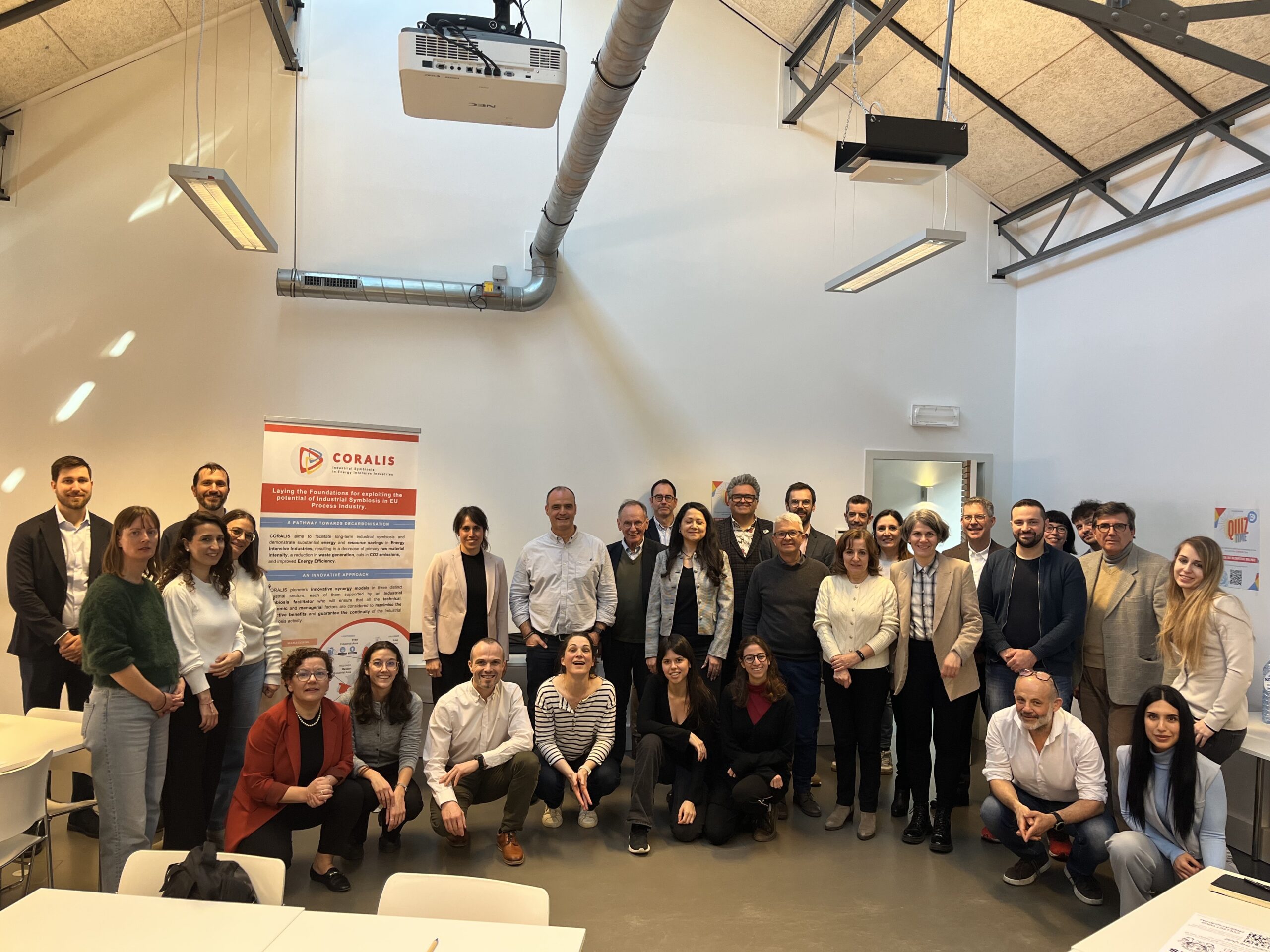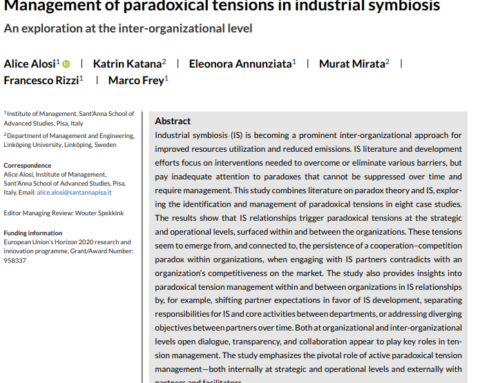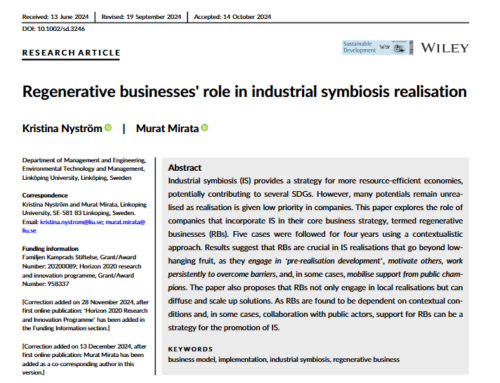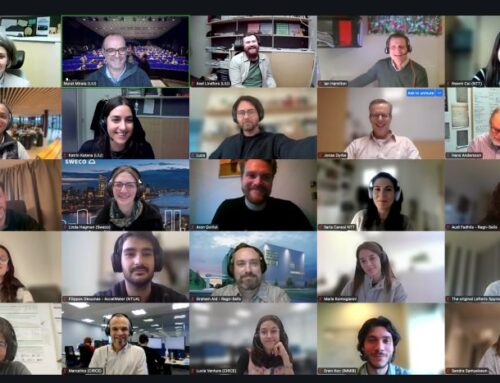On Tuesday 11th February 2025, our project partners from Linköping University (LiU) hosted the 4th CORALIS learning webinar “Policy Leverages and Bottlenecks for Industrial Symbiosis” that brought together experts from across Europe to explore the policy levers and bottlenecks affecting industrial symbiosis. The event provided an in-depth exploration of how different elements of the European policy ecosystem influence the development and scaling of industrial symbiosis initiatives, and it highlighted both the progress made and the challenges that remain.
During the CORALIS Learning Webinar on Policy Leverages and Bottlenecks for Industrial Symbiosis, we were pleased to welcome a distinguished panel of experts who shared their insights on the regulatory landscape shaping industrial symbiosis:
Dr. Aurela Shtiza – Director, Industrial Affairs & Raw Materials, IMA-Europe
IMA-Europe represents the industrial minerals sector at the EU level, promoting sustainable mineral extraction, processing, and use. The association works to improve industry standards, advocating for policies that support environmental performance, workplace safety, and responsible resource management.
Luca Marafioti & Roberta Montesano – RINA Consulting S.p.A.
RINA is a global company offering testing, inspection, certification, and engineering solutions across various industries, including energy, infrastructure, and maritime sectors. With a strong focus on sustainability, RINA supports businesses in optimising processes, reducing emissions, and advancing circular economy strategies.
Tobias Eriksson – Head of Public Affairs & Government Relations EU, Ragn-Sells AB
Ragn-Sells is a leader in waste management, environmental services, and recycling. With operations in four countries, the company is committed to turning waste into valuable resources, driving circular solutions, and contributing to a more sustainable economy.
Their contributions provided valuable perspectives on overcoming regulatory challenges and leveraging policy to enhance industrial symbiosis adoption.
In short:
-Regulatory frameworks and definitions: Speakers offered a detailed overview of EU directives, such as the Waste Framework Directive and the Renewable Energy Directive, emphasizing the critical distinction between “wastes” and “by-products.” A common theme brought up was that the precise definitions and interpretations of these terms vary across national and regional levels, creating inconsistencies that hinder the implementation of industrial symbiosis.
-Bureaucratic and permitting challenges: The webinar underscored the role of bureaucratic delays and permitting complexities as major bottlenecks. Experts illustrated how current permitting processes, often burdened by fragmented regulatory interpretations, can delay or even obstruct innovative practices. The need for a harmonized, clear, and streamlined approach to permitting was highlighted as essential for allowing companies to quickly transition from waste management to resource valorization.
-Ecosystem dynamics and stakeholder collaboration: A central takeaway was the importance of fostering a dynamic ecosystem where stakeholders—ranging from local authorities and industry players to researchers and facilitators—engage in open dialogue and collaborate towards common objectives. The webinar showcased real-world examples where proactive collaboration helped overcome political inertia, enabling the development of novel business models and sustainable practices. Participants emphasized that while local authorities have significant influence, the overall success of industrial symbiosis relies on a willingness from all parties to listen, learn, and innovate together.
-Opportunities for policy improvement: Panelists discussed “what if” scenarios, exploring potential legislative reforms that could drive industrial symbiosis forward. Proposals included aligning national regulations more closely with EU directives, revising outdated definitions, and creating incentives that empower small and medium enterprises. These improvements could facilitate the smoother exchange of materials and energy between industries, ultimately contributing to reduced carbon emissions and a more resilient circular economy.
The discussions at the webinar made it clear that while significant progress has been made in promoting industrial symbiosis, the current regulatory landscape still presents challenges that need to be addressed. Harmonizing policies at the EU, national, and regional levels is crucial to create an enabling environment for sustainable resource management. CORALIS project has complied policy recommendations (publication is pending) that can help to reform these regulatory hurdles.
This engaging dialogue marks an important step toward bridging the gap between policy intent and practical implementation, ensuring that industrial symbiosis can reach its full potential as a key driver for decarbonization and circular economic growth in Europe. More efforts in this direction are needed.
Watch the recording of the webinar here.







